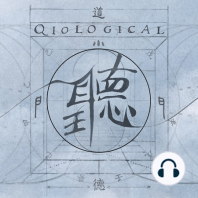6 min listen

282 Five Gentleman of Flavor, Taste & Nature • L Stiteler, B Bernadsky, S Feeney, F Griffo, A Ellis
282 Five Gentleman of Flavor, Taste & Nature • L Stiteler, B Bernadsky, S Feeney, F Griffo, A Ellis
ratings:
Length:
90 minutes
Released:
Dec 13, 2022
Format:
Podcast episode
Description
To use herbs within the scope of traditional Chinese medicine, we must first understand the qualities, temperatures, and tastes that dictate how each herb will function. Flavor, Taste and Nature gives us a snapshot of how an herb travels in the body, how it functions and the dysregulation or disharmony it may address. With the botanical world lending us a diverse palette of flavors to promote health and healing, the art of herbs in Chinese herbal medicine comes down to the skillful use of flavors individually and in combination to balance the phases and the corresponding channels and organs. It’s like the artful combination of textures and flavors in a kitchen—but to restore health and harmony to the body.One of the defining strengths of our therapeutic practice is the ability to match individuals with particular botanical medicines. As such, a practitioner’s experiential understanding of an herb’s energetics via the direct perception of taste, flavor, and nature was—and still can be—a powerful tool for healing. Today’s conversation is one borne out of synchronicity. What was scheduled to be a 3-person panel discussion with Simon Feeney, Loren Stiteler, and Boris Bernadsky turned out to be a ‘party’ as Andy Ellis and Frank Griffo joined us. The outcome was a lively exchange that covered diverse topics around herbs. We mulled over the flavor-based nature of herbalism, the shortcomings of our education system, the variability of herbs, and the processing/preparation of Chinese herbsListen into this discussion on how flavor, taste, and nature can inform our understanding and clinical application of herbs.
Released:
Dec 13, 2022
Format:
Podcast episode
Titles in the series (100)
Welcome to Qiological by Qiological Podcast